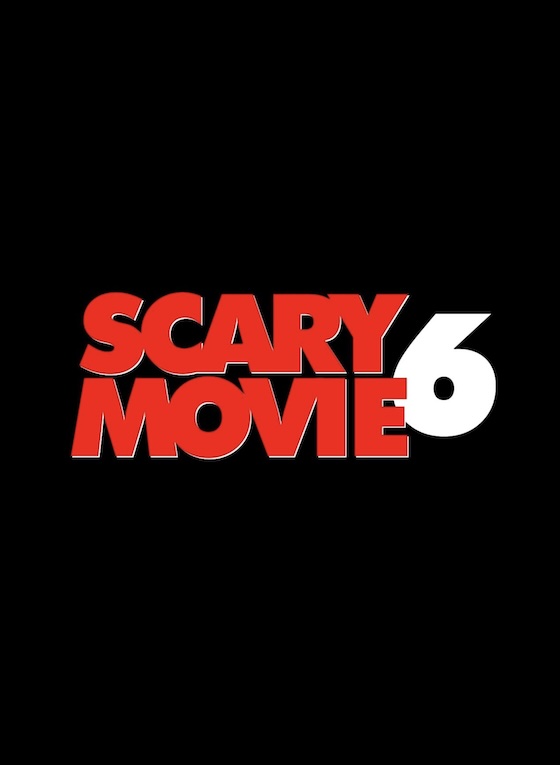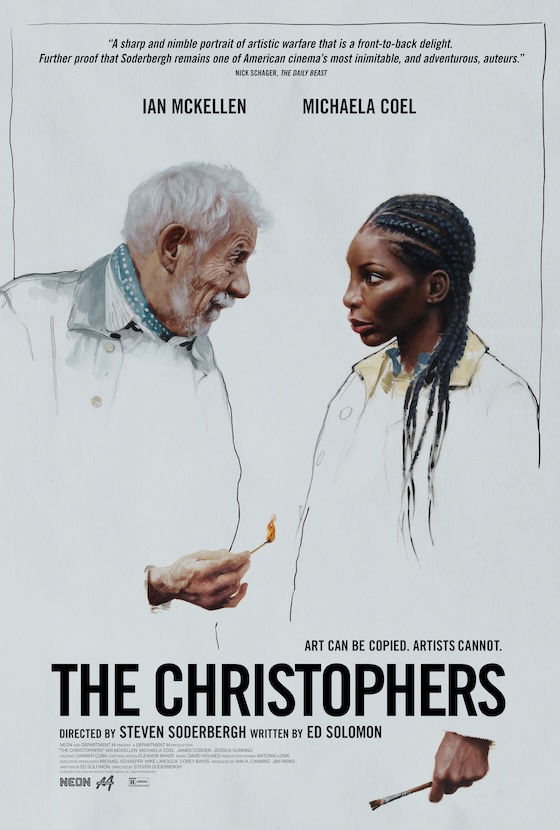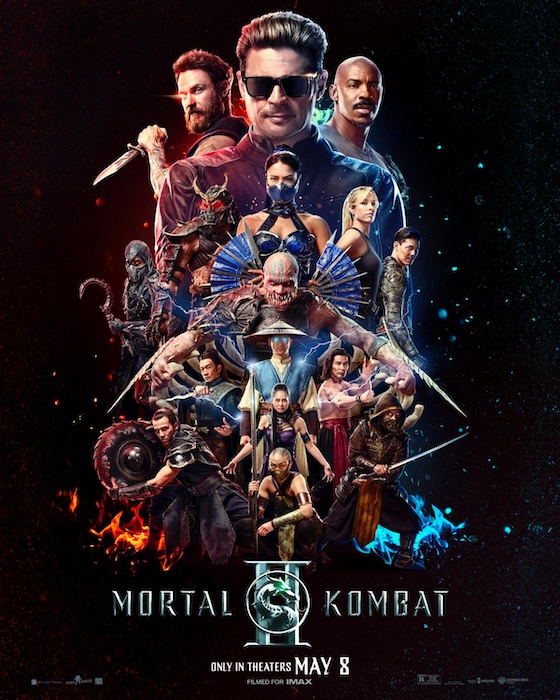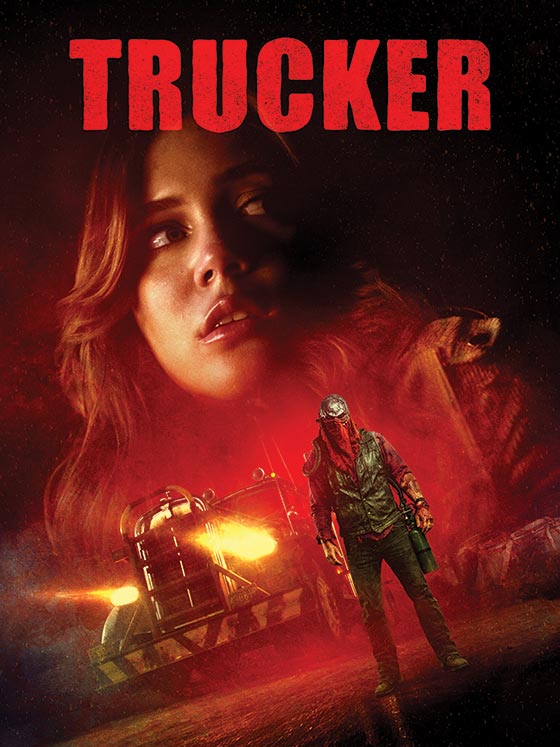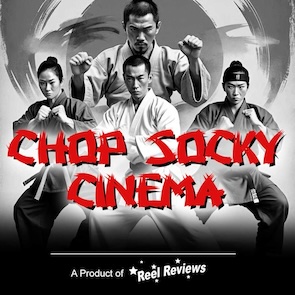{googleAds}
<div style="float:left">
<script type="text/javascript"><!--
google_ad_client = "pub-9764823118029583";
/* 125x125, created 12/10/07 */
google_ad_slot = "8167036710";
google_ad_width = 125;
google_ad_height = 125;
//-->
</script>
<script type="text/javascript"
src="http://pagead2.googlesyndication.com/pagead/show_ads.js">
</script></div>{/googleAds}Call it a labor of love. Biopic director Oliver Stone's (JFK, The Doors, World Trade Center) boyhood fascination with the mystical powers of Greek mythology and audacious conquests of Alexander the Great has grown into a passion project of epic proportions. With the much anticipated 2004 theatrical release of Alexander harshly criticized for everything from casting and continuity to Colin Farell's bad, blonde dye-job, Stone felt prompted to release a â"faster paced, more action packed" Director's Cut on DVD in 2005. However, the second attempt not only left its viewers asking whether slicing a mere eight minutes of film was enough to accelerate the film's already awkward time line but if it even bothered to elucidate the many questions Alexander had left unanswered.
Haunted by the decision to twice surrender to the content and time restrictions imposed by commercial film-makers, Stone now offers the Macedonian King's faithful an â"uncensored, un-tampered with, undiluted...interpretation of Alexander's incredible life." With 40 minutes of never-before-seen footage injected, wholly reconstructed and running a whopping 3 hours and 34 minutes in length (plus an intermission), Alexander Revisited: The Final Cut begs the question: is the third time truly a charm?
While the road to answering that question is not nearly as long as the movie itself, let's begin by giving credit where credit is due. Encapsulating the life of one of history's most celebrated military commanders (who not only achieved his first victory at 16 and assumed power of Macedonia at 20, but conquered most of the known world by his death at 32) into a 3 hour-plus time slot, is a harrowing task, to say the least. Only a director with a deep-rooted passion for Alexander's personal and military life could take on a historical project of this magnitude; continually pressing to bring others closer to understanding the man behind the sword.
Regrettably, however, Stone's vision falls short of forming any lasting connection between us and Alexander (Colin Farrell). Instead, his decision to drop the audience into a head-spinning labyrinth, pervaded with flashback after awkward flashback, only serves to create a disjointed timeline that, unfortunately, not even the greatest of battle scenes can mend. Now opening on Alexander's deathbed, Alexander Revisited almost instantly catapults ahead 40 years to an aged narrator in Ptolemy (Anthony Hopkins), one of Alexander's top generals and the current Pharaoh of Egypt. Without warning, the story rewinds 45 years to the Battle of Guagamela, again 20 years earlier to Alexander's childhood, fast forwards 7 years, leaps another 9, flashes back 10 (you get the point). Sadly, the film plays more like an intoxicating game of 52-scene-pick-up rather than a sobering progression through the life of a boy who would be king.
Alexander2
COLIN FARRELL who stars as Alexander the Great and his horse Bucephalas go up aginst BIN BUNLUERIT as Poros, King of India and his war elephant.
All images copyright © 2004 Warner Bros. Pictures.
While the non-linear navigation is draining, viewers will at least appreciate that Alexander Revisited delves deeper into the familial and sexual relationships that shaped not only Alexander's youthful curiosity, but his royal reign and desire for worldly unification. But does Stone delve deep enough? With the loathsome King Philip's (Val Kilmer) assassination more fully explored, scenes between Alexander and his snake-wielding mother, Queen Olympias (Angelina Jolie) hint at a conspiracy. Were they secretly involved to ensure Alexander the throne or did Pausanius (Toby Kebbell) act alone? Does their lingering kiss and shared bed allude to an incestuous relationship? And if Alexander truly hates her so, then why does he opt to marry the â"barbarian," Roxane (Rosario Dawson), identical to Olympias in mind and spirit? Likewise, in spite of the tumultuous relationship Alexander and his father shared (in one breath they tenderly explore mythologies memorialized on cave walls and in the next, Philip publicly declares Alexander a bastard-child) why does Alexander strive for a unique reign but then mimic the paternal traits he do desperately despised? With so many familial issues exposed, yet left unresolved, it makes us wish that Stone had been gutsier and probed further into the psyche, so that we can better understand his interpretation of the hero at the core of it all.
One relationship Stone bravely chose to explore in this version, is that with eunuch, Bagoas (Francisco Bosch). In an era where love had no labels (i.e., bisexuality, homosexuality), Stone allows Alexander and Bagoas to court through provocative dance, kiss without inhibition and express with a compassion that is void of class lines and sexual orientation. Conversely, Stone proffers his male viewers with more (and I do mean more) of Rosario Dawson in an extended, animalistic sex scene which frighteningly recreates Philip's attempted rape of Olympias. Void of the loving-hand which caressed Bogoas, Alexander's wholly â"reproductive" actions speak volumes regarding the lovers he favored most.
Strangely enough, however, we are restricted from learning more about Alexander's unique and life long connection with childhood friend and second-in-command, Hephaistion (Jared Leto). Although this was the one, true, non-judgmental relationship Alexander had ever experienced (so much so that Alexander considered Hephaistion an extension of himself), these men never move beyond the lingering looks and excessive hugging. In one scene, Hephaistion suggests that he will spend the eve of battle with Alexander, but then on Hephaistion's deathbed, Alexander speaks only of friendship. Perhaps Stone has intentionally blurred the lines because he, himself, is unsure whether these men were lovers or merely brothers in life. Whatever the answer, Leto is often left looking beautiful from afar and we are left all the more confused for never getting to discover this â"alter ego" of Alexander.
Without question, Colin Farrell is a promising young actor, but his weak portrayal of Alexander will leave you longing for the strength of modern-day on-screen warriors such as Mel Gibson, Russell Crowe or the newly-anointed, Gerard Butler. Granted, his boyish good looks serve the young king well, but his Irish brogue is distracting and his long-winded speeches are less than inspiring - only justifying that Alexander the Great, he is not. Angelina Jolie makes a striking Greek goddess, but her over-the-top accent is unfortunately, more reminiscent of Rocky & Bullwinkle's Natasha and her inability to age is borderline embarrassing. Nevertheless, a deplorably delicious Val Kilmer and faithful confidante Jared Leto outshine their counterparts and breathe some well-needed life into the film.
Let there be no mistake, the battle scenes are absolutely breathtaking. As Alexander and his outnumbered faithful take on the massive Persian army, your heart will race with every lunge of the sword and it will drop with every fallen man. Likewise, the horse versus elephant battle in India is something that Hollywood could never emulate without computer generation. Hands-down it is a unique and mesmerizing account of the chaos surrounding feared hand-to-hand combat. Unfortunately, however, you will have to wait some two hours between each battle; something we cannot forgive considering that Alexander the Great was historically defined by those mighty battles he fought with valor.
There is no doubt that historically, Alexander was a noble figure. A feared ruler who not only courageously fought beside his generals, but whose bleeding heart walked among the wounded; a son who longed for the acceptance of a loathsome father and was the prized possession of a conniving mother; a lover, a husband and a loyal friend. A life reminiscent of Greek tragedy, his name would forever be synonymous with greatness. With a majestic flair, Stone has thrice tried to pay film homage to this great Macedonian King. And while this latest attempt superficially succeeds with grandiose battle scenes, passionate love affairs, high powered special effects and a mild psychological exploration of history's most renowned warrior, Alexander Revisited's dizzying flashback-induced timeline, less than convincing leading man and failure to wholeheartedly expose the man behind the sword, regrettably, renders it a B-rated flick rather than a block-busting biopic.
But then again, Stone is fully aware that this film never quite rises to the occasion. In the only bonus feature to the two-disc film, Stone admits â"[f]or those who didn't appreciate the original, rest assured this is my last pass, as there is no more footage to be found. And for those of you who did like it, please share my passion for Alexander, every sublime and awkward pixel of it." Rest assured, whether you find it wholly sublime or awkwardly confusing, Alexander Revisited will undoubtedly be deemed the finest of Stone's three passes. And while in his defense, we can never expect a historically flawless account of 32 years of life crammed into a mere 214 minutes of film, we cannot help leaving it feeling entirely unresolved and desperately wanting more. A charm? Maybe to some. But to the rest of us, Alexander Revisited: The Final Cut will merely be a moderately entertaining film that never quite achieved the awe-inspiring greatness of its subject.
DVD Details:
Screen formats: Widescreen Anamorphic 2.35:1:1
Subtitles: English
Language and Sound: English: Dolby Digital 5.1
Other Features: Color; interactive menus; director's introduction.
* Featurette - All new introduction by Oliver Stone.
* Trailers - The original theatrical trailer for Alexander
Number of discs: - 2- Collector's Edition Keepcase Packaging
{pgomakase}

